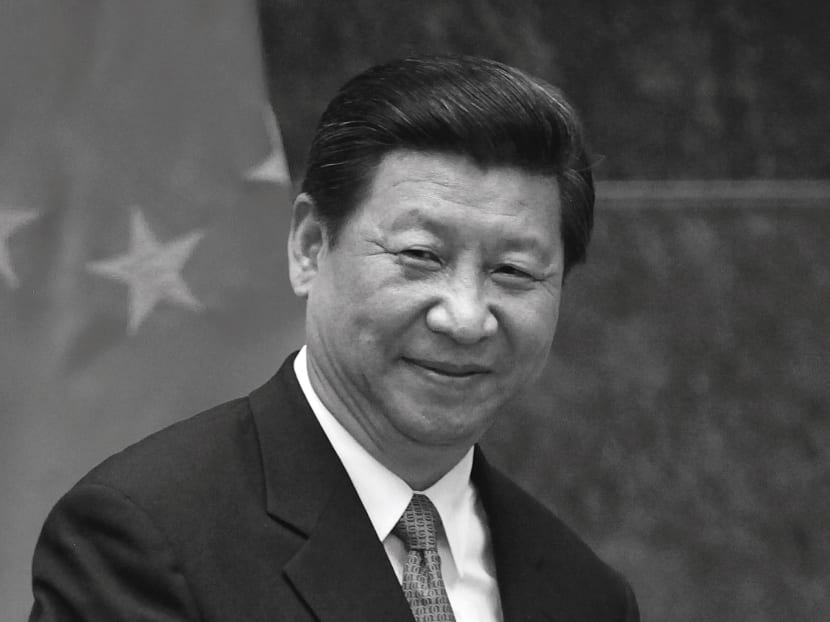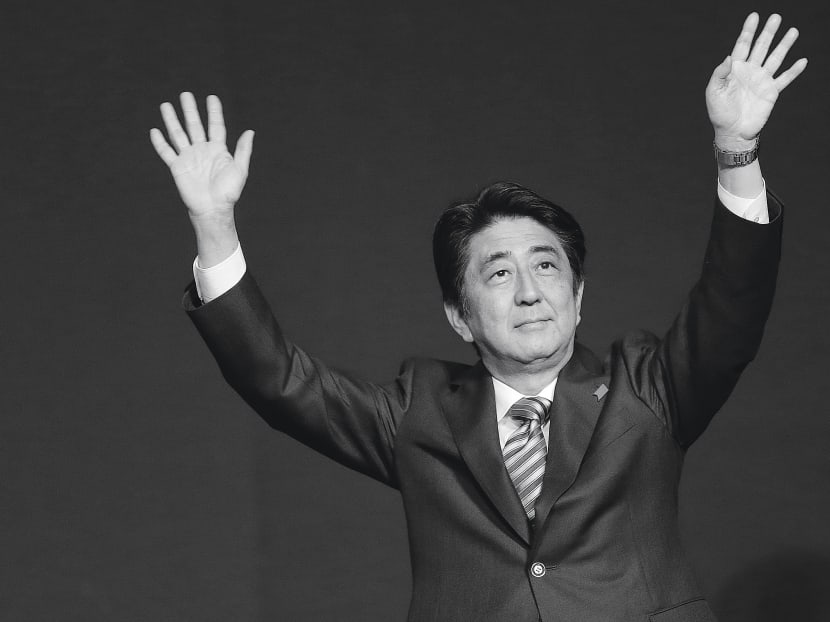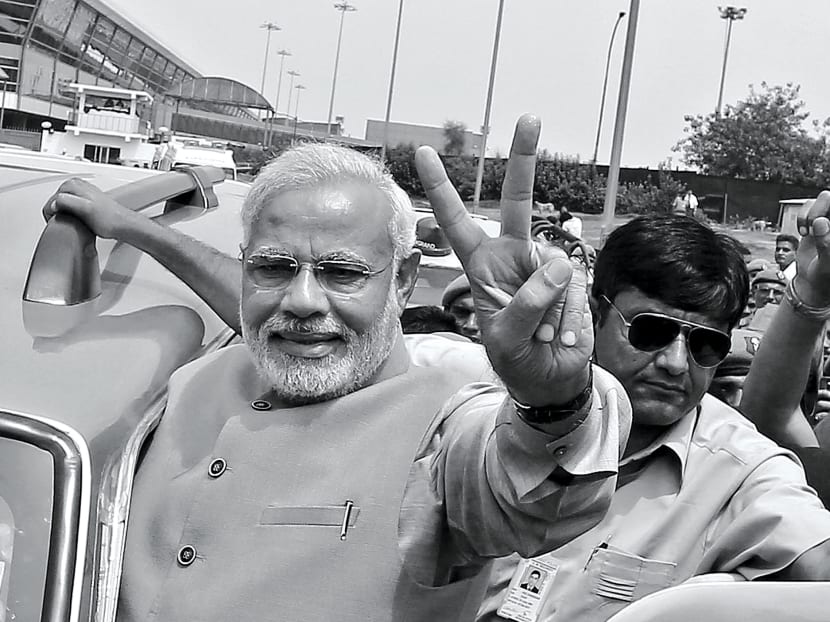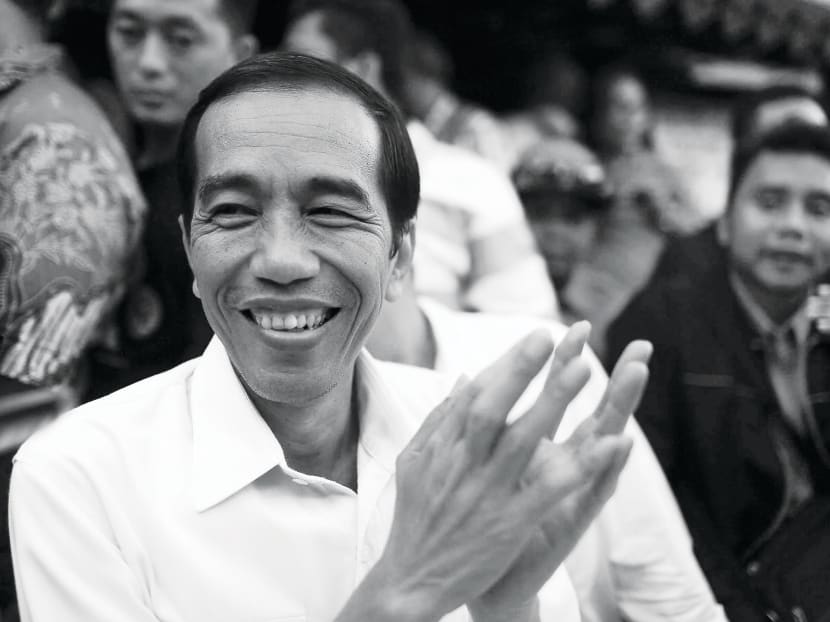Strong leaders in a fragile Asia
Not long ago, Asians suffered under weak governments. Japan stumbled through a series of short-lived and unpopular leaders while, in China, the last years under President Hu Jintao saw necessary reforms postponed.




Not long ago, Asians suffered under weak governments. Japan stumbled through a series of short-lived and unpopular leaders while, in China, the last years under President Hu Jintao saw necessary reforms postponed.
In India, after initial high hopes, former Prime Minister Manmohan Singh ended his term with more critics than fans.
Indonesian President Susilo Bambang Yudhoyono, who will soon leave office, is experiencing much of the same.
There were both political and economic costs as faltering leadership affected investor confidence. Currency values and growth rates in both India and Indonesia tumbled last year.
The wish was for stronger leaders who could deliver solutions. Now, this wish seems answered in China and Japan under President Xi Jinping and Prime Minister Shinzo Abe, as well as in India and Indonesia, following recent electoral victories for Mr Narendra Modi and Mr Joko Widodo.
Expectations are high that these new leaders can steer the four Asian giants to greater heights. However, each faces unique challenges.
GROWING TENSIONS
First, the good news: The new leaders are keen on reform. Mr Xi is undertaking difficult but necessary economic reform and acting against corruption.
For Japan, the unorthodox policies of Abenomics have stimulated growth that was almost unimaginable.
The exact policies of the new leaders in India and Indonesia remain to be seen. However, expectations that they will initiate reform are high.
All four leaders espouse broad policies that go beyond economics. Each offers a transformational vision for his country and its place in the world. Each also enjoys strong popular ratings that allow him ample scope toact boldly.
Yet, such strong leadership can have its costs.
Take the growing tension between China and Japan as an example. While territorial disputes had resurfaced before Mr Abe took over, the situation has worsened. Indeed, Mr Abe and Mr Xi may each gain domestic support by not giving way to the other.
Mr Abe is revising his country’s pacifist Constitution and positioning Japan to play a bigger security role in the region — an issue that is controversial even among the Japanese.
On its part, China has broadened the dispute by introducing an Air Defence Identification Zone that overlaps with areas claimed by Japan and South Korea.
With South-east Asian neighbours, too, Mr Xi’s consolidation of power in China has not lessened friction. On the contrary, Beijing has displayed more assertive behaviour, such as its unilateral move to begin drilling for oil in an area of the South China Sea which Vietnam also claims.
Strong leaders can destabilise a fragile region. The United States, for so long the dominant force in the region, has sought to adjust to the new dynamics in regional geopolitics by strengthening its pivot to Asia with deeper trade and security ties with its partners.
Two weeks ago, US Secretary of State, Mr John Kerry, in detailing America’s vision for Asia-Pacific engagement, outlined four specific areas where the US and the Asia-Pacific could work together: Creating sustainable economic growth, powering a clean-energy revolution, promoting regional cooperation and empowering people.
The US has to be careful not to overemphasise the role of its military in the region. Some in Beijing already believe the Americans welcome Mr Abe’s ambition for Japan to serve as a counterweight to China.
Tokyo’s efforts to support Manila and Hanoi in their territorial disputes with Beijing by providing the two countries with naval vessels are seen in this light and have heightened Sino-Japanese tensions.
THE EQUATION FOR
INDIA AND INDONESIA
The tussle for a balance of power has provided a complicated backdrop for the new administrations in India and Indonesia, especially with regard to foreign and security policies.
In New Delhi, the tradition is to remain non-aligned. However, some quarters in the Indian capital are keen for India to play a bigger regional role and compete with China, whether at sea or over disputed territories in their shared mountain borders.
The new Widodo administration in Indonesia will take office only in October and will not have much time before it gets swept up in regional meetings.
These include the Asia-Pacific Economic Cooperation (APEC) summit to be hosted by China and the East Asian Summit (EAS), which is convened by the Association of South-east Asian Nations (ASEAN).
Current signs promise continuity with the internationalist outlook of the outgoing administration. There are, however, questions of nuance arising from the incoming President’s lack of foreign policy experience.
Some also question how much Jakarta will assert its own and separate weight or continue to be enmeshed in the regional group of ASEAN.
It would be good if Indonesia can continue to work within ASEAN to maintain its central role in the region’s political and trade arrangements.
The EAS, in which all the major power participate, especially needs strengthening.
ASEAN would also hope to deepen ties with India and for Indonesia to play an active role in the group, given the ballast of these regional heavyweights. Otherwise, as and when the giants assert themselves, ASEAN will struggle to remain united and relevant.
Asia used to suffer under weak leadership, but stability was maintained for the most part. Stronger Asian leaders are now in place and can deliver domestic reform and economic growth.
However, if these leaders assert their strength in security and foreign relations against one another or vis-a-vis the US, regional stability can potentially be unbalanced and even upended.
ABOUT THE AUTHOR:
Simon Tay is chairman of the Singapore Institute of International Affairs and author of Asia Alone, which warned of power imbalances in the region in the wake of the global financial crisis.






